Meet Our Mentees!

April 9, 2024
Višnja Milidragović
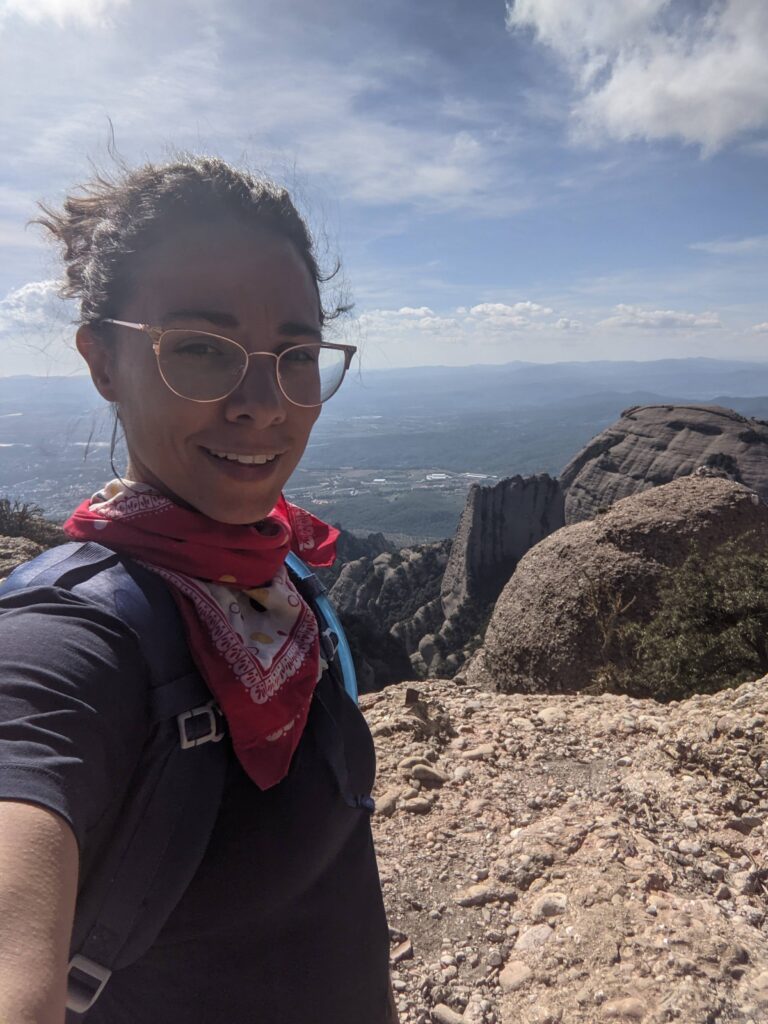
I started working on my memoir in 2020 when I joined SFU’s The Writer’s Studio and entered Kevin Chong’s workshop group. This was the first time I formally shared my work and honed my craft through critical readings and group discussion. As lockdowns became a norm, I was able to commit unprecedented amounts of time to writing and by the end of the year, despite having a full-time job, I overcame my fear of the blank page and amassed sixty thousand words. In late 2021, I received a Research and Creation grant from the Canada Council, which gave me opportunities to take short periods of time away from my job to go on writing retreats, first with Betsy Warland and Shaena Lambert in a group setting, then on self-led retreats, which included a longer trip to my homeland of the former Yugoslavia where I was able to complete my first draft.
I expect that this mentorship will help me view my manuscript with new eyes – the eyes of a larger market and readership, which will give me a new perspective on myself as not only a writer of my first book but an author who can defend her work and vision for this project once she lets it out into the world.
Something I’ve learned over the years, despite being a night owl, is that my best writing time is in the morning, when my left brain is still asleep and my mind is not yet sullied by details of daily life. Because I work Monday to Friday, much of my writing happens on my days off, in short spurts of 3 to 4 hours, usually on Saturdays. I start around 7 or 8 am, avoid speaking to anyone (except a permissible good morning mumble to my two cats as I make coffee) and then get to work until I emerge hours later from the office and my husband asks me, rhetorically, if I’m hungry, as he hands me a sandwich.
If I ruled the perfect world, writers would be considered essential, with a sizable, reliable government stipend to bring works into the public realm. We would be regarded as indispensable archivists of our time and would be required to engage with community as part of our writerly duties so that we can step into our societal role of teacher and philosopher. We would form covens and coteries and worship the Muse to open our chakras. Our immediate society would be our workshopping group and we would be skilled orators and performers who bring joy and wisdom into the hearts of all those we interact with. Most of all, we would never doubt our abilities and would be celebrated for our introspection and maddening ability to wield words into worlds of significance that actually change the world for the better. We would be brimming with inspiration and energy and writer’s block would be a shared phenomenon due to Mercury in retrograde when we would take a well-deserved break to travel, swim in the ocean, trek through rainforests and meet new people from all over the world.
Zadie Smith is an author I’d choose to write a book about my life.
Ten years from now, I am working on my fifth book and am making a respectable living from my writerly life. My highlight would be a bestselling debut anti-war memoir that was translated into 25 languages and added to all school curricula, effectively changing the course of history by helping us move past late-stage capitalism, violence, and consumerism. My lowest point would be the weeks when the afterglow of early success wanes, when I must battle the pressure of dreaming bigger.
Shashi Tuteja
I am grateful to be selected for this mentorship program and will get guidance from Shyam Selvadurai, an experienced and award-winning author. I hope to have an outstanding manuscript that is ready for publishers and has a real impact on readers. I’d also value the opportunity to meet industry professionals and other writers to learn about trends and the business of publishing.
I have always loved reading and started writing short stories based on prompts, years ago. For the novel, I selected the theme of religious tolerance based on international and local news, and thereafter developed the idea, characters, and events based on rigorous historical research, interviews, and conversations. I am passionate about the theme and tried to communicate that in my writing. I hope the readers will be able to relate to the protagonist, her life story and emotions.
When it comes to my writing process, I am a pantser and start with a theme, setting and vision of the character and what I want to communicate. Immersed in the story, I go to sleep thinking of what the next part will be and wake up with changes I must make. I seek a lot of feedback from writing groups, critique partners and friends on multiple iterations throughout the writing and get a developmental edit completed. This is followed by self-editing, more feedback, putting the manuscript aside and going back to it again.
In ten years, I would like to be an established author, with three books published while I am writing my fourth. All the published books will be on the path to being translated into multiple languages and sold internationally. I also hope that a couple of books will be converted into a movie or television series.
I want to continue writing, mentor emerging writers, and participate in author events. The high point would be getting published. The low point is the rejections and difficulty in getting published.
If I could choose one author to write a book about my life, I would want Amrita Pritam, an eminent female writer, novelist and poet of the 20th century to write my story. Having said that, I find that Anosh Irani writes in a way that pulls in the reader from the first page. He understands the Indian setting and culture and makes the characters interesting. There may be some things about being a woman that he may have difficulty in grasping but as a sensitive writer, I am certain, he will find ways to overcome that.
In a perfect world, there will be greater opportunities for all writers specially those above 50 years. These are individuals who have life experiences that are valuable and their books can provide useful insights to readers.
Sanita Fejzić
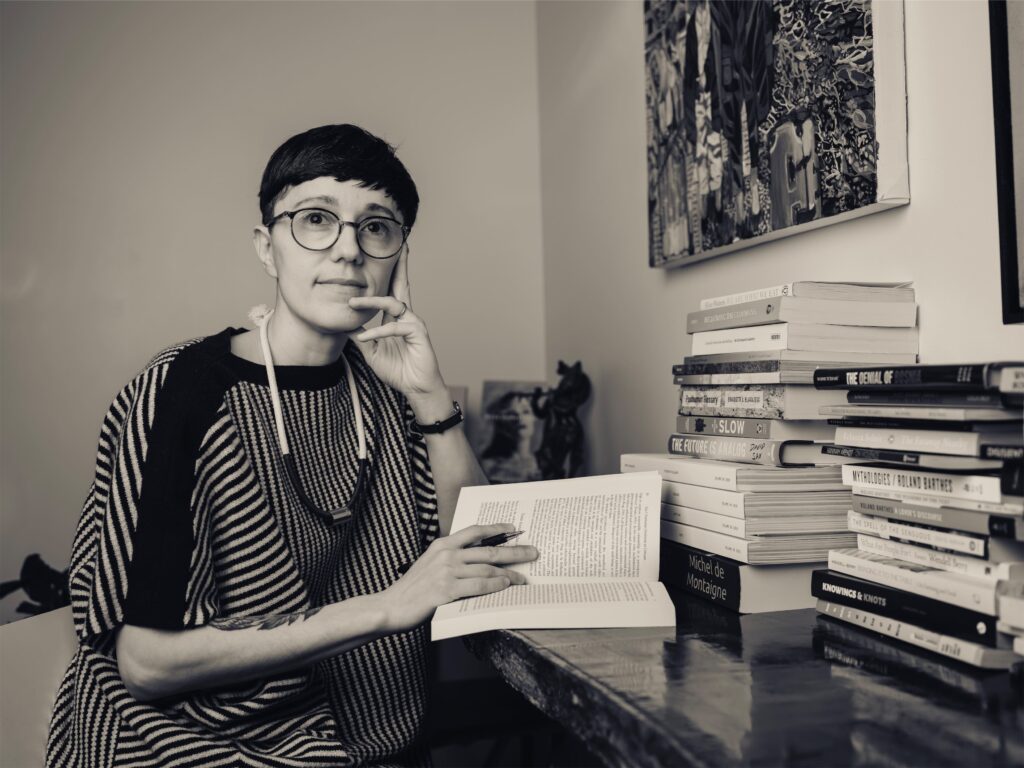
Working with Doyali Islam as my mentor, I hope to gain greater clarity and confidence around my voice which is, at present, hovering somewhere between lyric and prose poetry. I’m also including visual elements in Refugee Mouth using a technique I learned at the 2023 Banff Writing Residency and trying to make decisions about how to integrate that into the manuscript. With Doyali’s help, I hope to learn how to create cohesion at the manuscript level, not only at the level of voice and aesthetic style, but also at the level of order and thematic coherence.
To write with honesty, one needs to remain sensitive and open to the poetry and potency of life. This is the sunshine of poetry. One must also live a literary life and read daily. This is the bread of poetry. Beyond reading and writing, you need a community of poets, experienced and generous editors, to workshop your manuscript. Writing is rarely a solitary act.
My manuscript, Refugee Mouth, has been a work in progress since 2016, when I was editor of In/Words Magazine and Press while an English student at Carleton University. Some of the poems have been published, won, or shortlisted for awards. It wasn’t until later, after 2021, that I consciously started to stitch together a book manuscript. I became more intentional about what poems I wanted to include, write, and keep editing.
I would want my life to be a play for the stage, and I’d want Caryl Churchill to be the playwright. Not only because I had the pleasure to meet her and experience her British hospitality, but because her plays have an uncanny ability to embed the individual within community, culture, history, and the systems of power that too often rock our lives to and fro.
In a perfect world, of which I was the ruler of all, a writer’s life would be unaffected by the need to pay rent and put food on the table. Every writer would have a room of their own and a full belly. And if we’re aiming for perfection, every writer would have equal access to culture and education, and the time, support, and good health necessary to cultivate their craft.
In 10 years from now, I hope to be recognized for my poetry, prose, and playwriting. Too often, writers are pigeonholed into one literary form, yet many successful novelists are also accomplished poets. Many playwrights have mastered poetry and opened—or broken—hearts in verse and dramatic dialogue. I hope I am translated into other languages, especially my mother tongue, Bosnian. The lowest points will be when I lose sight of my purpose and forget that writing and editing are supposed to be fun. The highest points will be when my work touches readers’ hearts and awakens them to something delightful and unexpected. What could be more delicious than for readers and audience members to seek your words, to be spellbound by your craft?
Pujita Verma
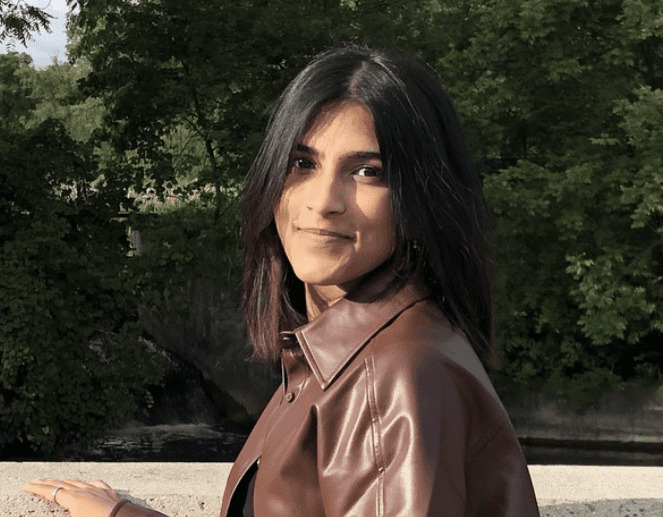
Last year, I started to compile the collection of poems I’ll be working on in the mentorship. It seeks to ask questions about what takes priority in how we relate to one another—with its answers grounded in a fractured beginning of childhood. I’m hoping for this collection to embrace themes including silence and resilience, culture, conviction, reincarnation, and matters of the heart.
I hope that this mentorship with Doyali Islam will encourage me to take risks and be innovative with the forms, content, and style of my poetry collection. I’m also looking forward to learning about the creative process from someone who holds literary and empathetic integrity, sees vulnerability as a strength, and poems as the sites for new beginnings.
To me, a good poem borrows from the intricacies of our experiences. I find it challenging to keep a consistent writing practice, but each day, I’ll aim to come up with atleastonegoodline to store in my notes app. It can be a simple observation, a pressing thought, or the strongest emotion I’ve felt that day and what prompted it. I go through life collecting lines.
When I have time to write, I’ll pull these notes together and look for the larger themes. From there, it is all about rewriting, revisiting, and refining until the piece feels ready to share with the world.
When I read Téa Mutonji’s “ShutUp,You’rePretty”last Fall, I was immediately inspired by her sharply observed writing and how she grappled with complex themes with eloquence and resilience. If I could choose one author to write a book about my life, it would be an honour to have Mutonji weave through my life and capture it through a collection of short stories—exploring another perspective on the collective experience of womanhood and all its imposition
In a perfect world of which I was the ruler of all, a writer’s life would look like having iced tea on tap, artistic freedom to express, and access to a range of inspiring creative spaces (I’m thinking of infinite libraries, fully-funded residencies, and personal cabins in the woods). There would also be time to write without the need to apply for grants, and lots of mentorship opportunities!
Ten years from now, I’ve sent into the world a collection (or two) of poems that I’m proud of. I’m in a place where I can work with young writers and build an extensive, supportive literary community.
My lowest points would be the times I keep myself from writing, either from not being able to find the time or getting in my head about my work. The highlights would be times I’m able to push through adversity and break free from cultural confines and expectations. And the first time I hold my book in print!
Karan Gill
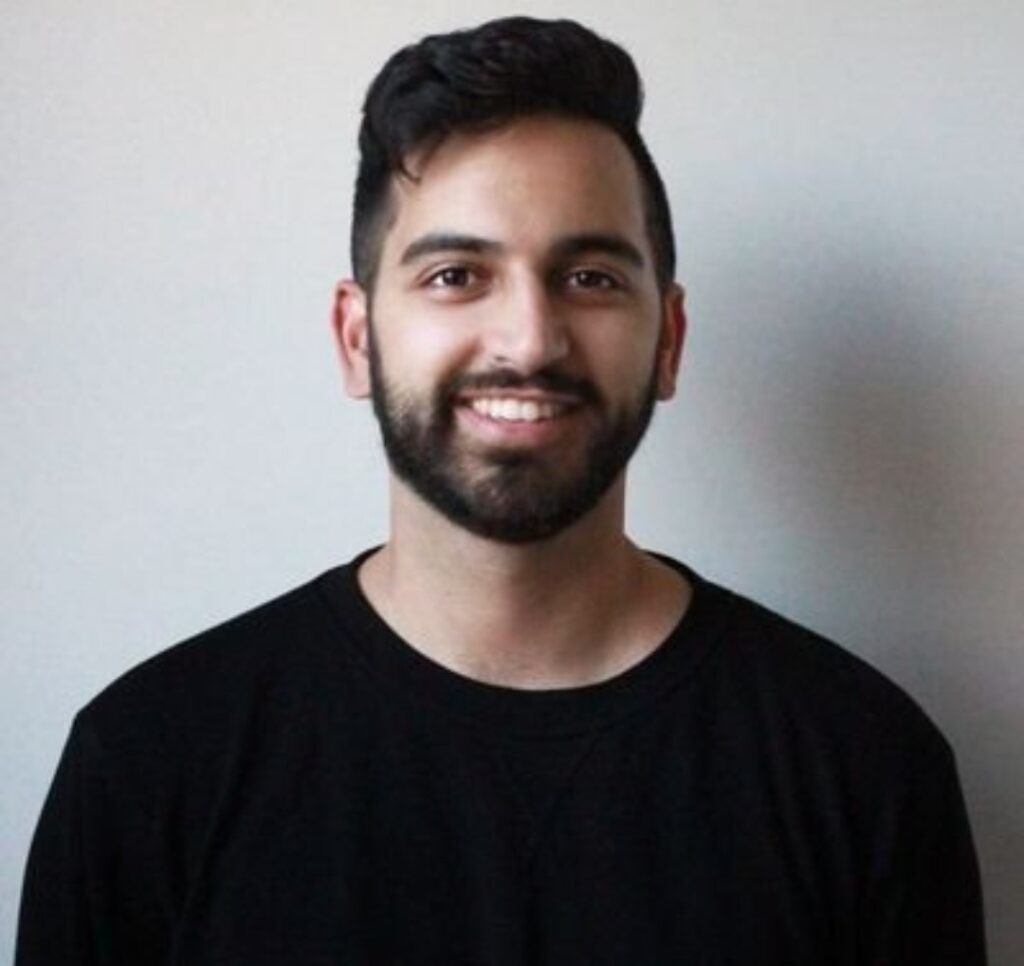
I hope that the mentorship program allows me to see my own writing, which I am much too close to, with a fresh perspective. I also hope to learn how to closely revise my manuscript and comb through sentences with a finer touch.
I started to work on my current manuscript in 2020 when in the midst of covid. I no longer had a job, I had much more time on my hands, and thought I should use this rare opportunity to write a novel.
For first drafts, I try to write as soon as I roll out of bed. The earlier the better, because once the kids wake up, I’m preoccupied for the next few hours and my creativity slowly vanishes as the day progresses. For later drafts, I can work wherever, whenever. Typically, I’m on the sofa in my living room, tweaking sentences a few minutes at a time, trying to get as much done as I can before real life comes calling.
I’m not exactly sure what a writing ‘career’ looks like. My primary concern when it comes to writing is to accurately and honestly express whatever I need to. I hope ten years from now I’ve found a way to be more disciplined, to be more productive. I also hope to retain a certain level of self-compassion. The lowest point of my ‘career’, I hope has already passed, and it came in the form of self-doubt, thinking I was not skilled enough to be heard or read. I hope the work that I’ve produced since then, and that I’ve has shown myself that I am skilled enough to produce work that I am proud of. My highlight will have been to find the perfect work-life balance, where I can go to work, write, be a great father, husband, son, friend, and still have time to watch football every Sunday.
In a perfect world, of which I was the rule of all, writers would get to write when they liked, and treat it as seriously as a real job. They would also be paid more for their writing.
If I could choose one author to write a book about my life, I’d choose Karl Ove Knausgaard.
Fabio Heredia-Casalins
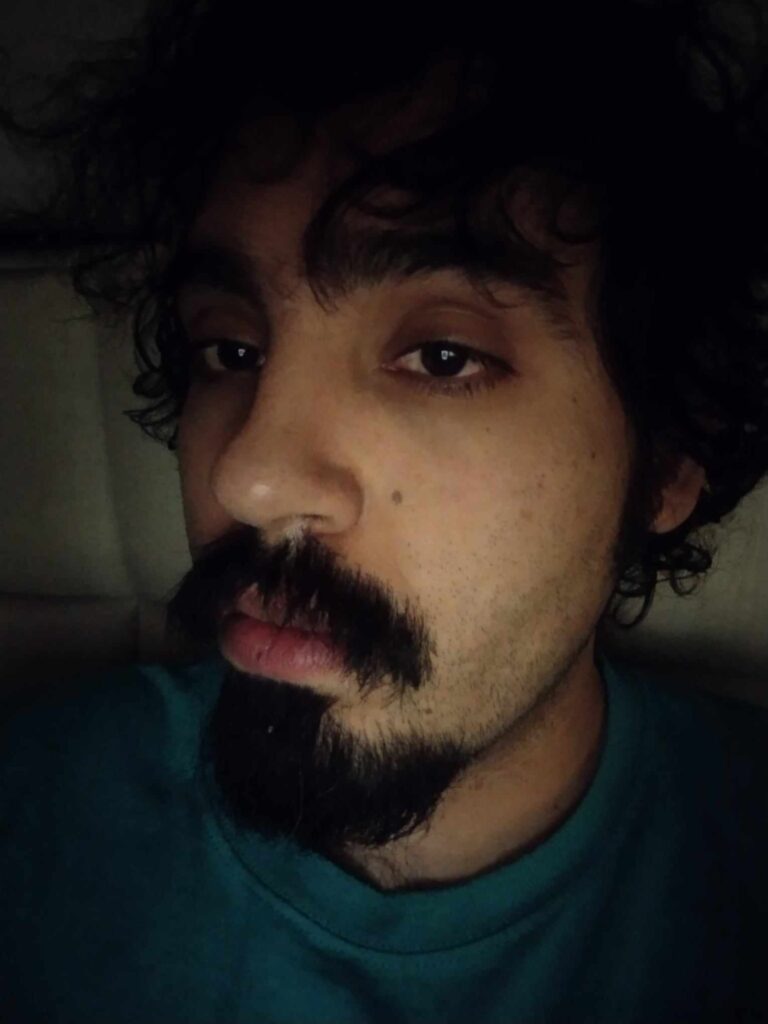
Fabio Heredia-Casalins is a Toronto born writer and contemporary artist of Venezuelan, Paraguayan and Colombian descent. As a child he spent all his free time drawing, playing make believe with toys and friends, and daydreaming. He holds a BA in English Literature and Studio Arts from the University of Toronto, a Film Production Certificate from The Chang School of Continuing Education, and a Creative Writing Certificate in Literary Fiction from U of T’s School of Continuing Studies (UTSCS). He moved to Calgary in December 2020 and was recently featured as a contributing writer for Mountain Standard Time’s debut issue of their digital magazine entitled, “iSSAY!” His work explores metaphysics, social construction, and identity.
This mentorship will help my continuing writing practice in the direction of a professional career and bring my vision to the page in it’s ideal form. Creating a strong creative working bond with my mentor will be invaluable.
The world of the novel began as an invented mythology surrounding planned conceptual art projects; I produced videos depicting the fictional memories of an unnamed person’s inebriated POV. Later, I became fascinated with folkloric explanations given to a series of violent murders in rural jungle communities of the Amazon as described in anthropological essays on the topic. Through a five-year period at UTSCS I focused on creating related concept vignettes, and about the experience of racialized first and second-generation immigrants in the GTA. A momentum to the narrative emerged from this coupled with a determination to finish a novel to publication. Tamara Faith Berger mentored me in actualizing the manuscript in it’s current form.
Letting the ideas play and snowball in my mind over time, an intense regimented writing period, followed by putting it completely out of mind for a few months and finally redrafting it.
I wouldn’t want someone to write about my life; my obituarist will suffice! If I had to choose, and could pick from all time, being the titular character of a tragi-comic play written by Shakespeare’s ghost would be a no-brainer.
In an ideal world, a writer would trade an original piece to a cashier at Sobey’s for some oat milk. If it were truly great, they might be able to trade a novel for a month’s worth of tofurky! Maybe then, great literature would be found all over the place, including in any random pile of city litter or in a seagull’s stomach. Everyone would be a storyteller.
In ten years, I will be making a living through personally meaningful creative and relational work. I will be working on a new novel, anticipated by some. The lowest point will have been writing a bad novel, rejected by all publishers. The highlight will be gouging out the best of it for use in a better work to a reasonable (if modest) financial payoff and earning brownie points in the eyes of my peers. I will have found a way to weave a creative career into working with others, perhaps as an instructor, professor, or as a facilitator of relational activist community art projects. If all else fails, I will be busking short stories and novel reviews, saving up to finally take up a lucrative career as an immigration lawyer and put the writing behind me until I’m again ten years wiser and more eloquent.
Blessing O. Nwodo
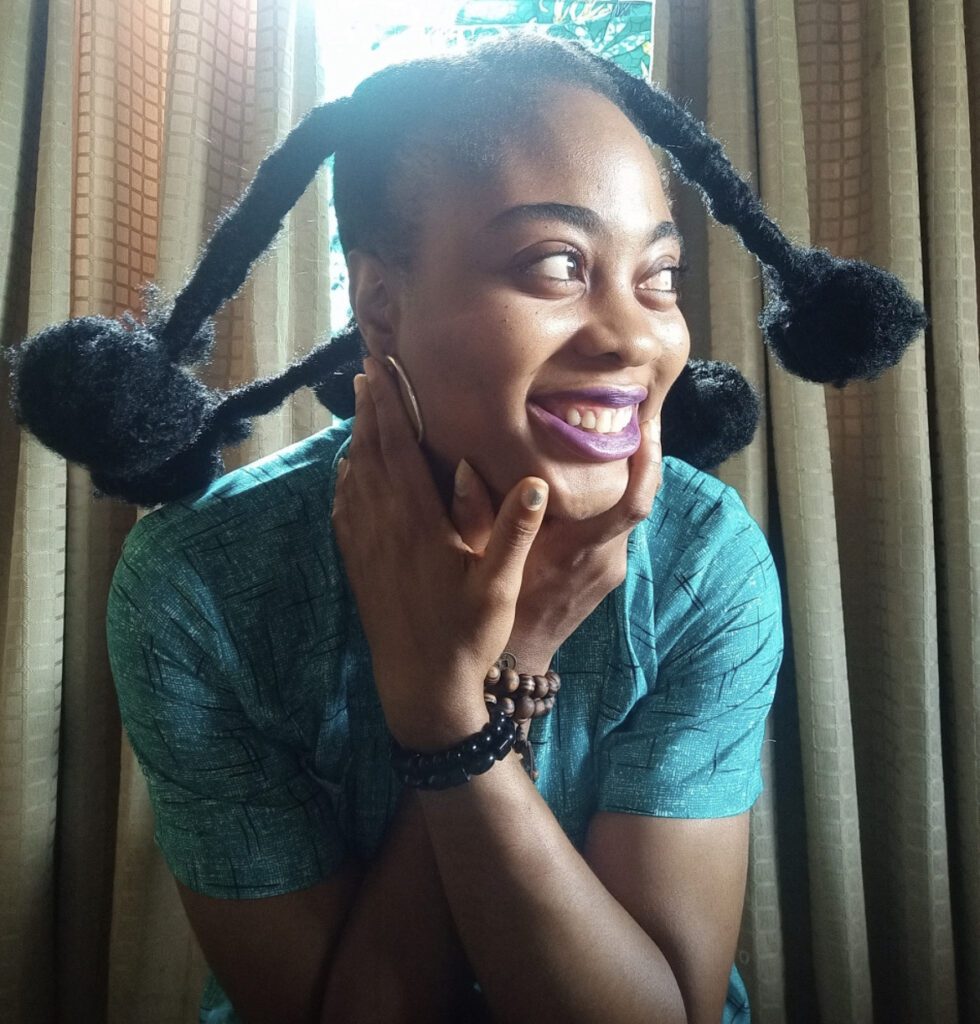
Writing to me is like finding my way to a destination I’ve not been to before. I need to know where I’m going in order to plot my way there. And other times, it’s being a leaf in a stream and seeing where the story wants to take me. It’s flowing with chaos. Accepting that the things that seem counterintuitive somehow work anyway. My writing process consists of flowing with chaos. Accepting that the things that seem counterintuitive somehow work anyway. Sometimes, writing to me is like finding my way to a destination I’ve not been to before. I need to know where I’m going in order to plot my way there. And other times, it’s being a leaf in a stream and seeing where the story wants to take me.
I am realizing that a lot of things in my writing journey would have been easier and would have taken less time if I had just had someone with experience to speak to for guidance. Sure, you learn from mistakes but some mistakes are unnecessary, and can be avoided and I expect that this mentorship would offer me the opportunity to establish meaningful connections, exchange ideas, and acquire insights that will play a pivotal role in shaping the development of my creative voice.
I wanted to write a collection of speculative stories that centred women in settings familiar and otherwise, subverting the same rules through which the patriarchy operates. I wanted magic, I wanted characters who questioned fearlessly, I wanted to infuse in them a refusal to mindlessly accept the status quo, I wanted a woman’s scream to mean something, to mean everything, to pierce through the systems that would demand her silence. I wanted and wanted and my desire created Faces Born of Nothing.
If I were the ruler of a perfect world, I would ensure that a write life would look like the scenes portrayed as reality in movies about the kind of life that writers supposedly lead. Large sun-filled skylight offices with shelves bursting with plants and books; the writer sitting on an ergonomic chair by their sit/stand desk positioned in front of a large floor-to-ceiling window overlooking the country with greenery and space as far as the eye can see; a cat stretching on the window sill, a golden retriever at your feet; a house manager that gets the cleaning and maintenance done; agents that do the work of selling so you can focus on writing; an administrative assistant, a chef, supportive friends and family, chauffeured cars to your book events, spa days to release stress, shorter depression days, less doubt and uncertainty.
Fast-forwarding my life to ten years from now and thinking about what’s happening in my writing career, I would say perhaps a feasible fraction of the scenes I just described. More publications and worldwide readership. A point at which I wonder what I was so afraid of. More clarity. Whatever the lowest point is, I hope it is something that I can handle and recover from. I know writers are not supposed to talk about money but it would be nice to be in a place where I don’t have to choose survival over creativity.
If I could choose on author to write a book about my life and it could be fiction, nonfiction, poetry or mix-genre, I would choose British-Somali poet, Warsan Shire to write the book.
Aline-Mwezi Niyonsenga
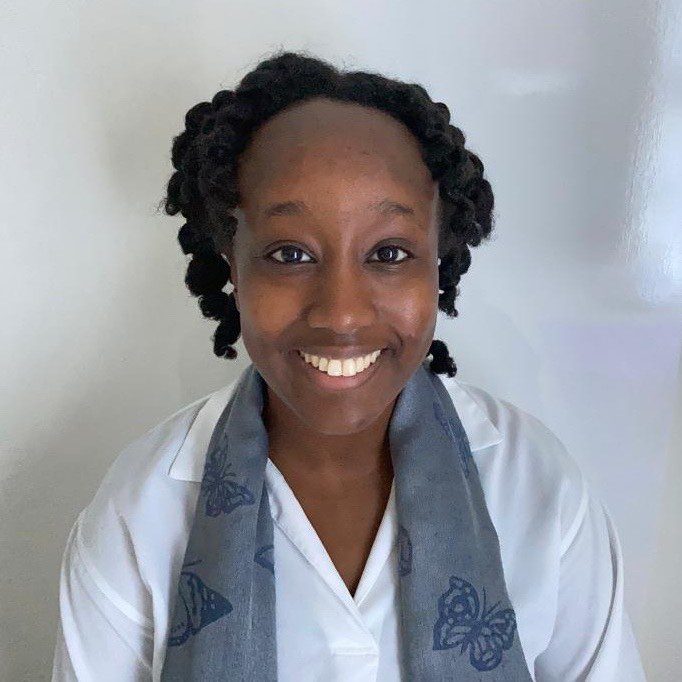
I expect the mentorship to give me a clearer perspective on how to put together a short story collection and on how I can improve my writing. I also expect it to guide me in where and how to pitch a short story collection to publishers or agents.
I gave myself a year to focus on writing short stories rather than writing a novel and that short story year expanded into many years. Now, I have around ten or so short stories published and I realised that they all relate and speak to each other in different ways. I’d like to shape a collection that uses speculative fiction to talk about migrant experiences and ways to find belonging.
My process looks something like: I think of a short story idea that has a clear ending and set a day aside to write it in a notebook. I leave it be, then I type it up. I leave that be. Then later I’ll reread it, make notes on what to improve, and leave it be. Later I’ll come back to it, address the notes, and when I’m satisfied with it, I’ll send it to a friend or critique group for comments. I’ll let the comments sit, then set aside a day to address them. Then when the story feels ready, I’ll submit it somewhere.
If I could choose an author to write a book about my life, it would be Scholastique Mukasonga. I feel like she’d make it funny and ironic.
If I ruled the perfect world, writers would be given a basic income and small studio to work in. The studio would have wall-to-wall bookshelves and a view onto a lake, forest, ocean, or verdant city. There would be a communal space to come together for readings, coworking, or simply hanging out.
In ten years from now, my third book is coming out. Leading up to this point, my lowest point has been running out of content and getting back-to-back rejections and negative reviews that have made me doubt my ability to write a good story. My highlight has been publishing my first and second books and building a community of readers and peers that look forward to my work.
